Did you know that overall 70% of individuals use healthcare apps for accurate diagnoses and up-to-date health care?
This data underlines the need for healthcare app development to drive business growth. The healthcare app is a great innovation that helps you to offer personalized medical services, better data management, and streamlined communication between patients and medical facilities.
Being a part of this growing industry will result in reaching a broad range of audiences, brand recognition, customer loyalty, etc. So, whether you’re a healthcare professional, entrepreneur, or running a hospital, understanding the potential of healthcare apps is the key to leading the industry.
In this blog, you will discover the top benefits and most significant features of healthcare app development that will help you to provide exceptional medical service. You will also learn how much you need to invest to build a powerful healthcare app.
Table of Contents
The Rising Demand for Healthcare Mobile Applications
The demand for mHealth apps has witnessed an exponential rise in recent years. The main reasons for such demand are the need for accessibility, convenience, and better patient health outcomes.
According to the industry reports by Grand View Research, the global healthcare app market is expected to increase at a CAGR of 14.9% from 2024 to 2030.
The adoption of medical apps using smartphones to gather and track individual’s health-related issues is one of the major reasons for driving industry growth. Another reason can be the increasing focus on patient-centric care and the rise of emerging remote monitoring technologies.
Benefits of Developing Healthcare Mobile Applications
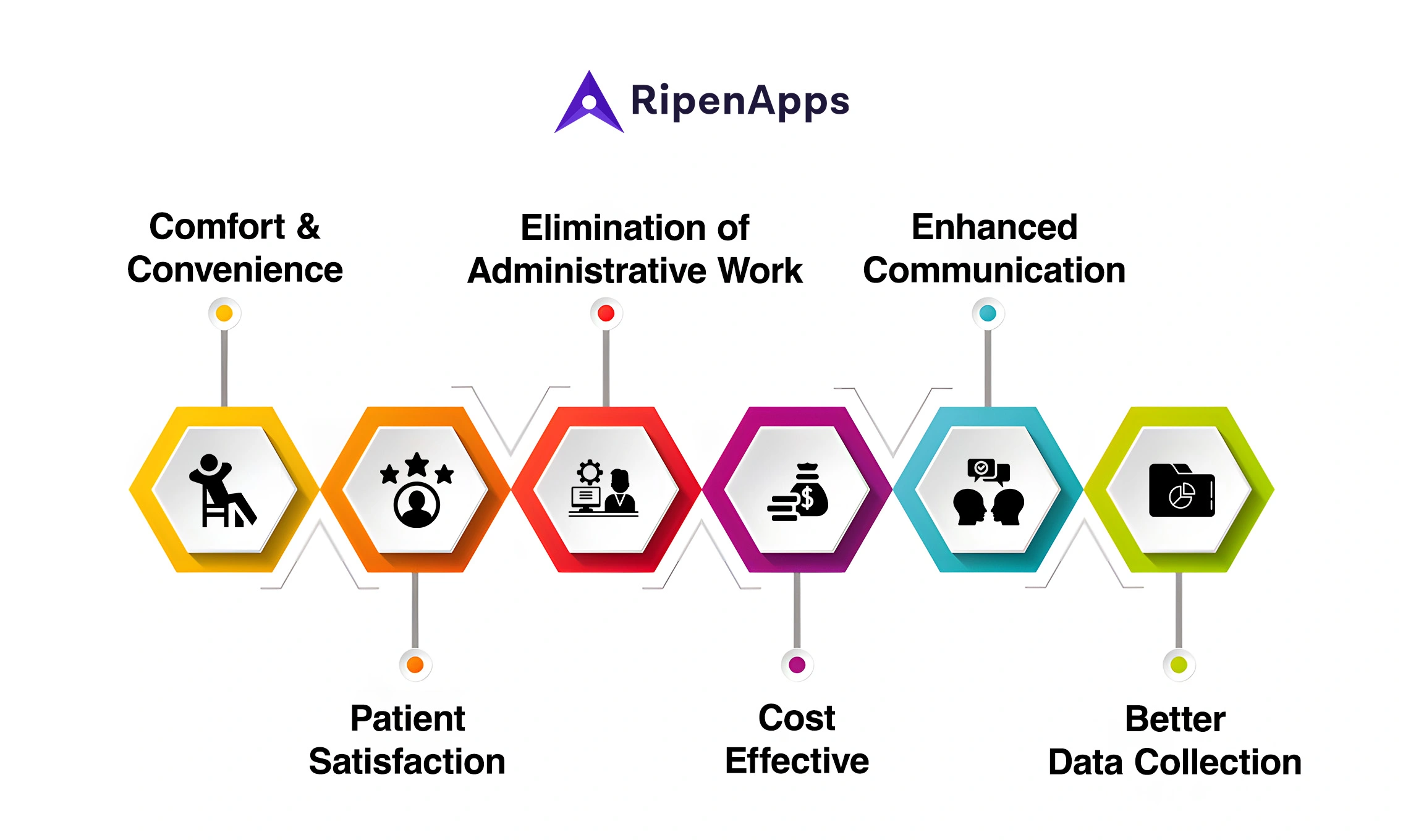
The rising demand for healthcare apps is driven by the convenience and accessibility they offer to both patients and medical service providers. Here, are the key benefits of building a healthcare app :
1. Provides Comfort & Convenience
The healthcare apps allow patients to avail services from the comfort of their homes. In remote areas, patients need to head out far to see a specialist and get the correct treatment. This becomes a more challenging task when the patient is a child or a senior individual.
Healthcare apps connect patients directly to their concerned medical staff by eliminating issues such as traveling long distances to see the doctors. Healthcare apps give ease to the people who live in remote areas and do not have much options. They can connect with doctors virtually. Therefore, if you are a medical professional, you can provide more help to your patients. You can share their health records and prescriptions at your fingertips.
2. More Patient Engagement and Satisfaction
With the help of healthcare apps, patients can get more engaged with their health status. This is because of the incorporation of advanced features such as reminders for their medication, real-time communication with medical professionals, etc.
They can manage their conditions in a much better way. Around 80% of patients feel more engaged with their medical providers which leads to higher satisfaction rates.
Moreover, several medical facilities are advancing patient-centric healthcare by leveraging AI in healthcare app development. In this way, patients can get answers to their queries in real time and will be more satisfied with their treatment results.
3. Elimination of Administrative Work
One of the most significant advantages of healthcare apps is that they allow medical professionals and patients to track all the details at their fingertips. It reduces their workload and allows them to provide treatment to multiple patients simultaneously.
From tasks such as appointment scheduling to patient data management, everything can be managed through mHealth apps. Therefore, it also eliminates the paperwork for both doctors and those who seek medical facilities.
4. Reduces Cost and Streamline Medical Processes
Healthcare apps provide patients with an opportunity to get their medical facilities. With the help of healthcare mobile apps, people can balance their health status without getting admitted to hospitals. That’s why, it streamlines the entire medical process. All they need is an internet connection and access to the mHealth apps.
Another advantage of developing healthcare apps is cost-effectiveness. This is due to better resource allocation and patient management. Also, by providing healthcare services accessible via healthcare apps, expenses can be reduced due to the elimination of traveling to hospitals, appointment papers, etc.
Read Also : 8 Future-Proof Healthcare App Ideas for Startups & Entrepreneurs
5. Enhanced Communication Between Patients and Providers
With the coming of the latest technologies, patients don’t have to wait for days to have a few words with their doctors. There are options available for messaging and video call features.
The incorporation of advanced features into healthcare apps, allows patients to connect with medical professionals in real-time. Another advantage of continuous communication is that it helps to build a strong doctor-patient relationship. In this way, patients also get the care they need. However, while developing a mHealth app for your patients, you need to comply with HIPAA to make your app as per the industry standards.
6. Better Data Collection and Insights
Healthcare mobile applications are also widely used to collect huge amounts of data on patient behaviors, health symptoms, and outcomes. Medical facilities can make the best use of these data to analyze and identify trends, predict patient needs, and make necessary treatment plans.
The doctors can use the collected information to provide personalized medical care. Whereas, a healthcare app development company can enhance your app functionalities based on user behavior and feedback.
Essential Features To Include in Healthcare App
1. Unique and Appealing UI/UX Design
An eye-captivating UI/UX design is crucial to ensure the success of your mobile application. A poor UI and UX design can hamper the user engagement of your app. So, you need to ensure a unique and appealing design.
Also, patients should find it easy to use your app. It will enhance their overall experience. If you want to ensure an eye-catching design for your app, you can reach out to a globally-recognized UI UX design agency. They will ensure that your app stands out in the market.
2. Data Security and Compliance
In today’s competitive era, security is a major concern. Therefore, you should ensure that your app healthcare should be integrated with advanced security features.
Try to implement end-to-end encryption, and multi-factor authentication to ensure compliance with industry standards. Moreover, your mHealth app should allow patients to pay their bills securely without any second thought.
Read Also : Security Measures To Be Taken While Developing A Mobile Application
3. User Profiles and Health Records
Your Healthcare app should allow users to create a personalized profile with their health status information, medical history, or their treatment plans.
These advanced features allow you to provide personalized recommendations. It also allows you to store electronic health records (EHRs) so that medical facilities can easily access the information when required.
Also, if you want to incorporate some more advanced features according to your medical project, then you can also work with a reputed custom app development company as custom-made apps can boost your business. They will leverage the emerging technologies to build such features.
4. Prescription Management
There are several advantages of a prescription management system. It allows patients to track their medications, give them reminders to take them, and many more. This feature is not only beneficial for patients but also gives alerts to healthcare service providers if a patient is regular with their medication plan or treatment.
5. Wearable Device Integration
Most of the advanced app healthcare can be seamlessly integrated with wearable devices such as smartwatches and fitness trackers. Apart from this, they also allow patients to monitor their health status such as heart rate, sleep patterns, steps, and other essential metrics in real-time. Even for medical professionals, the collected data is important to keep track of their patient health outside of a clinic. Therefore, we can say that wearable technology is shaping the healthcare industry to a great extent.
6. Real-Time Chat and Support
During the healthcare software development services, you can incorporate real-time chat options. This advanced feature allows patients to reach out to medical providers within a specific period.
These advanced features are crucial to add to your app healthcare to critically address non-emergency health issues and build trust between patients and doctors. You can choose from top healthcare app development companies in USA to add these necessary features to your app.
How Much Does it Cost to Build a Healthcare App?
$40,000 to $80,000 is the average cost of developing a healthcare app. However, the healthcare app development cost depends on various factors such as complexity, platform you chose, design, developer’s team expertise, and many more.
The most crucial factor that affects the cost is the complexity of your app. The more advanced features you want to include, the higher the cost. If you want to incorporate advanced features such as telemedicine, real-time chat, and EHR integration by partnering with the best EHR vendor, the cost will go upward.
Apart from this, the expertise of the developer team also significantly impacts the cost. You can explore more details about the cost in the mental healthcare app development guide.
Another factor that impacts the cost is an intuitive and visually appealing user interface. If you want to invest in a good design, it will increase the cost but will improve user experience.
Before starting with the healthcare app development process, you must have an average estimate for your project. To get the best quotation for your next project, you can also connect with a well-recognized top mobile app development company in USA. They will help you to build a feature-rich mHealth app within a limited budget.
Conclusion
Building a healthcare app offers numerous benefits for both patients and healthcare providers. However, it’s essential to recognize that developing a healthcare app requires significant investment in both time and money.
Careful consideration of the app’s complexity, features, and compliance requirements will help you determine the cost. Whether you’re a healthcare provider, entrepreneur, or developer, understanding these factors will empower you to make informed decisions about your healthcare app development journey.


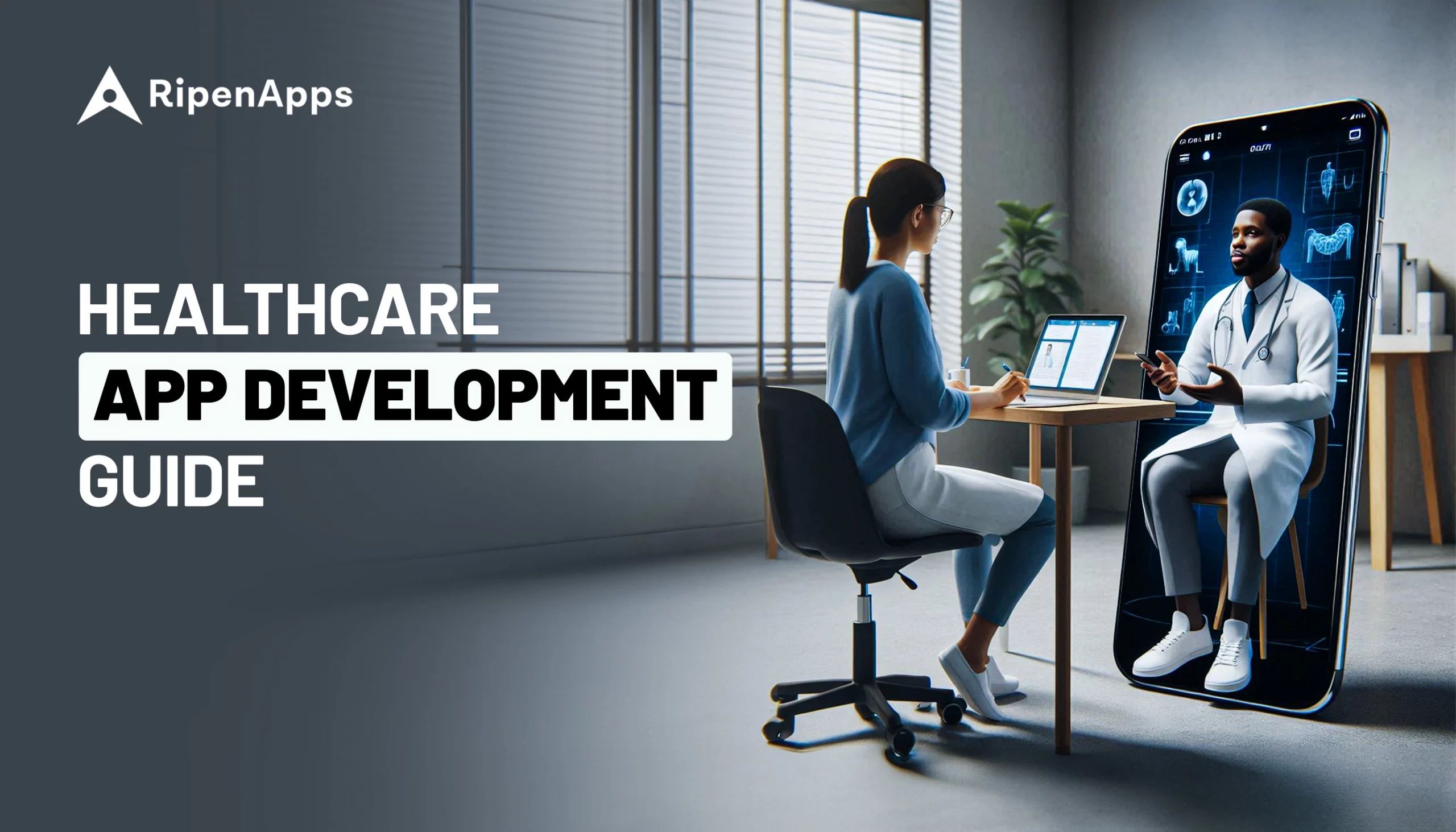




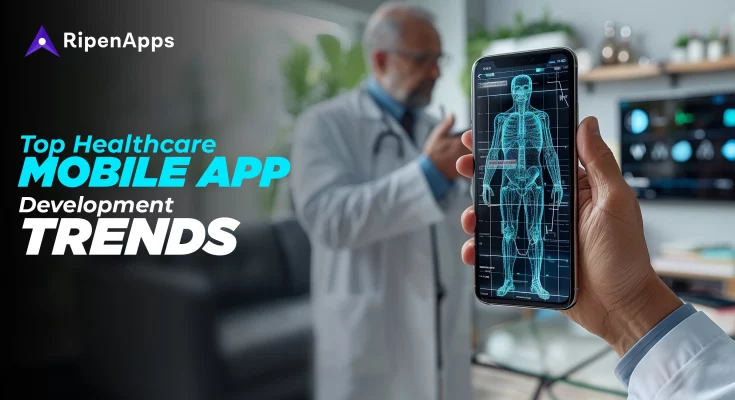
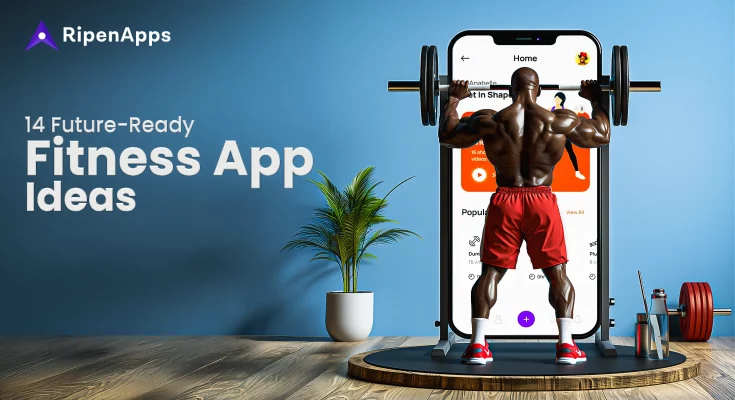
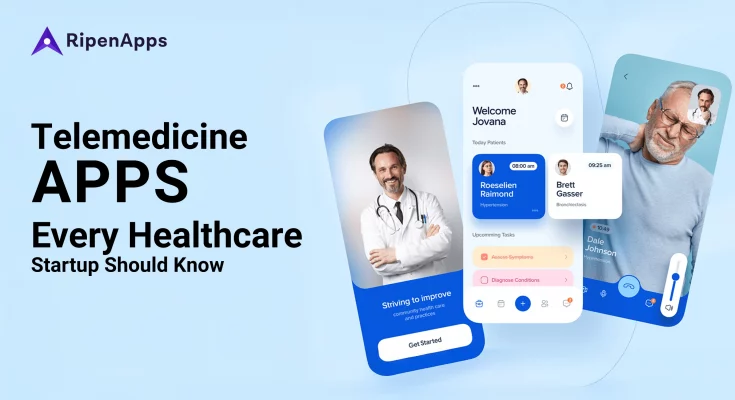

 India
India USA
USA Australia
Australia Canada
Canada UK
UK UAE
UAE
